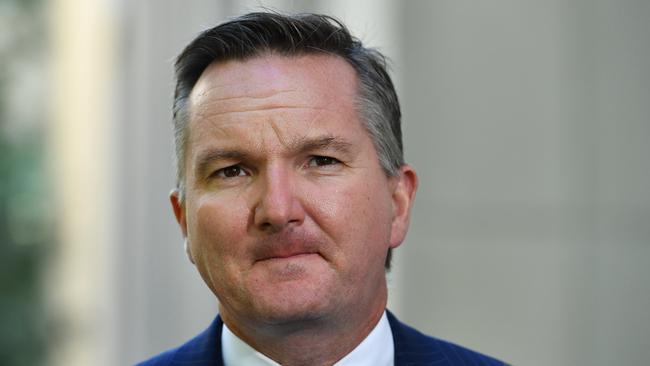Fears ALP to axe $6bn health insurance rebate
Confidential discussions between health insurance groups and Labor have sparked fears the $6bn rebate may be abolished.

The private health insurance rebate could face further cuts under Labor after confidential discussions between insurance groups and the opposition sparked fears the $6 billion rebate could be abolished, potentially driving up the average cost of premiums by 40 per cent.
Opposition Treasury spokesman Chris Bowen is understood to have held meetings with members of the private health insurance sector last month, in which industry sources say the prospect of changes to its current policy were not ruled out.
Private health providers have warned that any moves by Labor to scrap the private health insurance rebate would deliver a devastating blow to families and drive up the average cost of premiums.
Labor took a plan to the last election promising to extend the freeze on the PHI rebate income thresholds by five years, to June 30, 2026. This would provide $2bn in savings to the budget and removing the rebate from natural therapies.
It is understood Mr Bowen has told key stakeholders the policy was “under review” as part of a broader health policy.
A spokesman for Mr Bowen denied any suggestions had been made to the private health providers that Labor was considering scrapping the rebate or making deeper cuts, such as lowering income thresholds further or removing the rebate for more ancillary services.
“Suggestions that Labor would abolish the PHIR are complete rubbish and Labor has no plans to make additional changes to the PHIR on top of what we took to the 2016 election,” he said.
However, Labor MP for Bendigo Lisa Chester recently circulated an official Labor document that questioned the value of the rebate. “Australia is subsiding the cost of private health insurance to the tune of $10bn over the next four years, yet from evidence provided at the hearings, it is questionable whether it is really taking pressure off the public health care system,” it said.
The sector has warned that any move to scrap the rebate — or reduce it further than already proposed — could lead to a 40 per cent increase to the cost of average health insurance premiums paid by those individuals and families currently eligible for all or part of the rebate.
Medibank chief executive Craig Drummond said the biggest issue facing customers was affordability. He backed regulatory reform of private health insurance to keep premiums affordable and provide greater efficiencies across the health sector but said any further changes to the rebate would hurt customers and patients.
“What our customers are telling us is that any detrimental change to the government health insurance rebate would hurt them,” he said.
“Without the rebate, a typical family with teenage children with hospital and extras cover receiving the standard rebate of 27 per cent would pay around $1500 a year more (or 37 per cent more) for their health insurance, which is too big an ask and will inevitably lead to a significant decline in industry participation.”
Mr Drummond said more than 80 per cent of Medibank’s 3.8 million customers were claiming a private health insurance rebate to reduce their premiums.
“More than 13.5 million Australians have some form of private health insurance and they value their private health cover and their right to choose where they are treated, who treats them and how soon.
“Private health insurance remains a critical element of Australia’s healthcare system.
“Last year, Medibank spent $5.1bn on our customers’ healthcare, covering more than 1.3 million hospital admissions, over 26 million ancillary services like dental and optical, and more than half a million surgeries,” he said.
The chief executive of Private Healthcare Australia, Rachel David, said she was not aware of plans to remove the rebate but such a move would devastate people on lower and middle incomes.
“It would have a rapid and devastating impact on sick people on lower incomes,” Ms David said. “Removing the PHI rebate would mean a 40 per cent premium increase for health fund.
“ There are 6.5 million people with PHI who have an annual income of less than $50,000 and 3.4 million with an income of less than $30,000.
“Most of these people are older Australians.”
Health Minister Greg Hunt said Labor had already cut $4bn from the PHI when it introduced means testing and any further cuts would “destroy” Medicare and blow out public hospital waiting lists.
Industry modelling suggests that without the rebate, a typical elderly couple with hospital and ancillary cover receiving the maximum rebate of 36 per cent would see a $2447 increase in premiums to $6850 a year.





To join the conversation, please log in. Don't have an account? Register
Join the conversation, you are commenting as Logout